We are pleased to introduce you to the distinguished winners of ASA’s 2021 awards. The winners will be honored in a special virutal ceremony during the Virtual Annual Meeting. Each of the pieces below was submitted by the relevant award selection committee, and we thank the committees for their good work.
Cox-Johnson-Frazier Award
Rogelio Sáenz, University of Texas at San Antonio
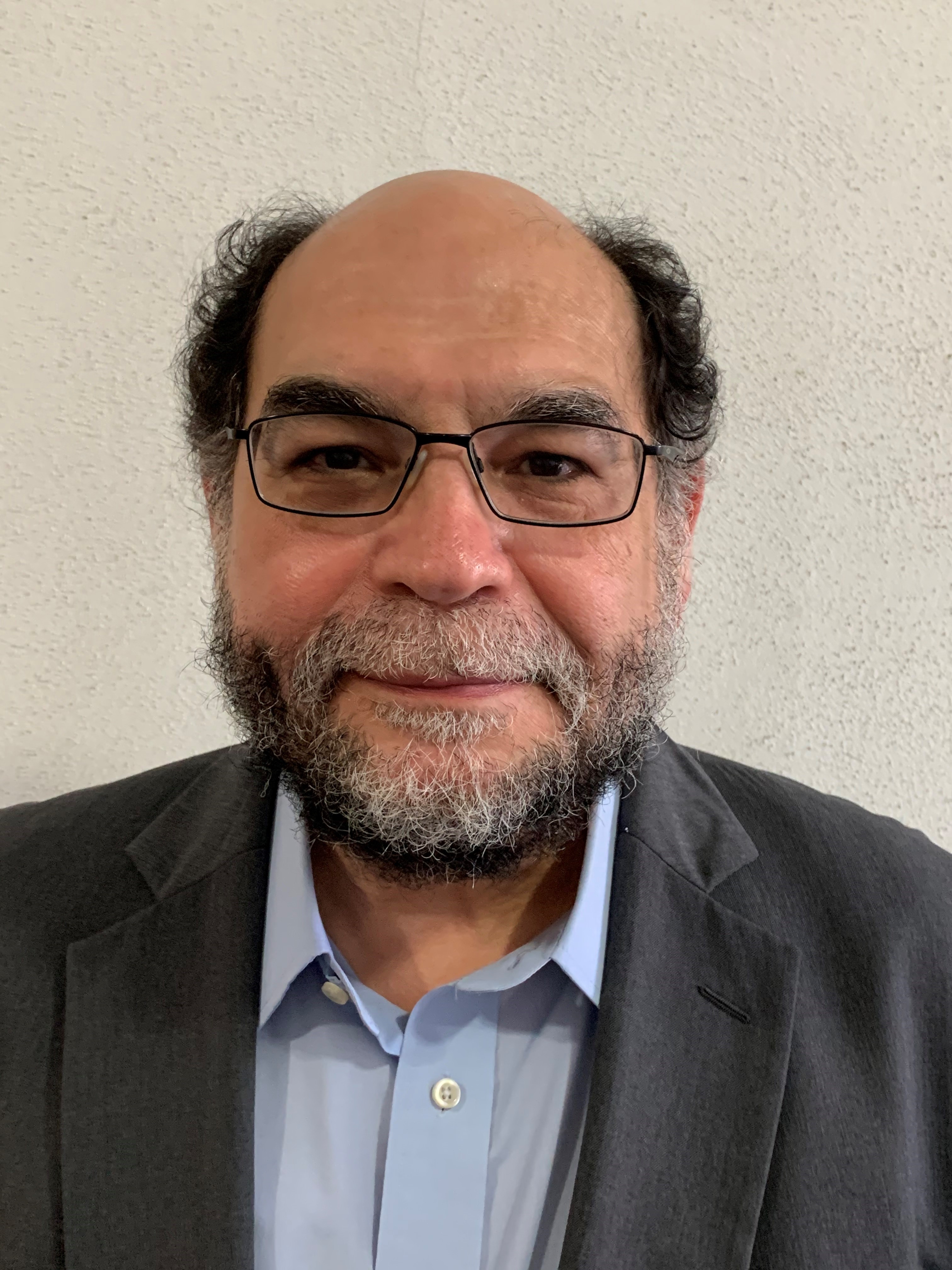
A social demographer, community scholar, and public intellectual, Saenz brings over 35 years of scholarship coupled with decades of community service and activism in the tradition of work of Cox, Johnson, and Frazier. Saenz’s contributions to human rights and social justice issues are extensive. He has an impressive record of research that has made a significant impact highlighting the lived experiences of historically disadvantaged, marginalized, and discriminated against populations, with a specific focus on Latinx communities. Particularly impressive are his contributions in areas such as: mass incarceration, the criminalization and racialization of Latino immigrants, Latino political participation, and racial justice issues dealing with health, well-being, and socioeconomic status, among others. More recently, his work in the community and academia has focused on the devastating effects of COVID-19 on disadvantaged groups. Saenz embodies the spirit of the award in his research and in his deeds.
By training, Saenz is a social demographer and, not surprisingly, he has written numerous papers using census data to analyze subjects such as interracial marriage, poverty, wages, internal migration, employment, schooling, and the like. These articles have been published in quality journals such as Demography, International Migration Review, Journal of Marriage and the Family, Population Review, Rural Sociology, and Social Science Quarterly among others. But Saenz is not a traditional “mainstream” demographer as he has researched and addressed pressing social issues also such as Arizona’s SB 170 legislation, domésticas, identity among Latinos, environmental matters, Samuel P. Huntington’s view on Latinos, the vulnerable place of undocumented workers in contemporary U.S., the cost of being Mexican, and, very recently, the impact of COVID-19 on people of color, in general, and Latinx people, in particular.
In the spirit of our scholarly ancestors for whose names this award bares, Saenz recognizes the urgency of his scholarship. He stands up in the moment by transmitting his research to the public through various forms and media. For example, in the past decade alone, Saenz has written more than 20 policy briefs and more than 70 newspaper articles, and he has also appeared on numerous local and national media outlets such as CNN to show up for the marginalized and disenfranchised. This is the best of sociology. In the words of one of his many nominators, “I know of no other senior Latino scholar with the sociological reach of Rogelio Saenz, period!” The Cox-Johnson-Frazier Award committee could not agree more. In fact, we assert that Saenz is truly incomparable and a beacon of justice for discipline of sociology.
Dissertation Award
Gözde Güran, Harvard University, for the dissertation titled “Brokers of Order: How Money Moves in Wartime Syria” completed at Princeton University

In contrast to previous research, which has focused on hawala’s role in funding terrorist networks, Güran finds that the informal money transfer system can also be a stabilizing and unifying force for communities and the NGOs who serve them. Through the hawala system, its brokers, refugees, NGOs, and other organizations could send money out of Syria (e.g., before leaving, so as to not have to carry money with them on their journey), into Syria (e.g., to support family who stayed behind, send humanitarian aid into a war zone, or pay NGO staff), and around Syria (e.g., to pay salaries or import goods) without money ever changing hands. This system, however, existed outside of (and often aroused the suspicion of) official institutions. Thus, its success depended entirely on trust—trust rooted in pre-war ties and cultivated by ties formed in exile. These networks of trust, in turn, ultimately dictated where money could flow and where it could not. Brokers, in turn, played a critical role in growing the network and building new ties of trust in the midst of forced migration and wartime displacement. These efforts ultimately made the hawala system more resilient and more reliable than official money transfer systems such as banks and Western Union, which regularly failed inside the war zone.
After building her own ties of trust with brokers (facilitated in part by her efforts to learn Arabic, which she used in addition to her native Turkish), Güran also developed and carried out an experimental audit study examining the social value attached to hawala transactions. Examining variations in brokers’ fees and exchange rates, Güran finds that brokers determine pricing based not only on the risks they take in moving money, but also on the hardships of those for whom and to whom they are delivering those funds.
The award committee was particularly impressed with the scope of Güran’s study and its ability to speak to topics of importance to a wide range of subfields. Committee members described the study as “a methodological tour de force,” “compellingly written,” and “theoretically sophisticated,” particularly in its ability to inform our understanding of prices and uncertainty. As one committee member noted: “Excellent extension of global world systems theory to emerging micro-economies.” Other committee members also highlighted the broad relevance of this project and its ability to speak beyond the Syrian case, writing: “The topic of grey market economies is increasingly important today, with the crumbling of the Western monetary system and the increasing migration and displacement of peoples around the world. Güran makes strong contributions to various sociological subfields, including global and transnational sociology, economic sociology, political sociology, peace, war, and conflict, and social networks.”
Elizabeth McKenna, SNF Agora Institute at Johns Hopkins University, for the dissertation title “The Revolution Will be Organized: Power and Protest in Brazil’s New Republic (1988-2018)” completed at University of California-Berkeley
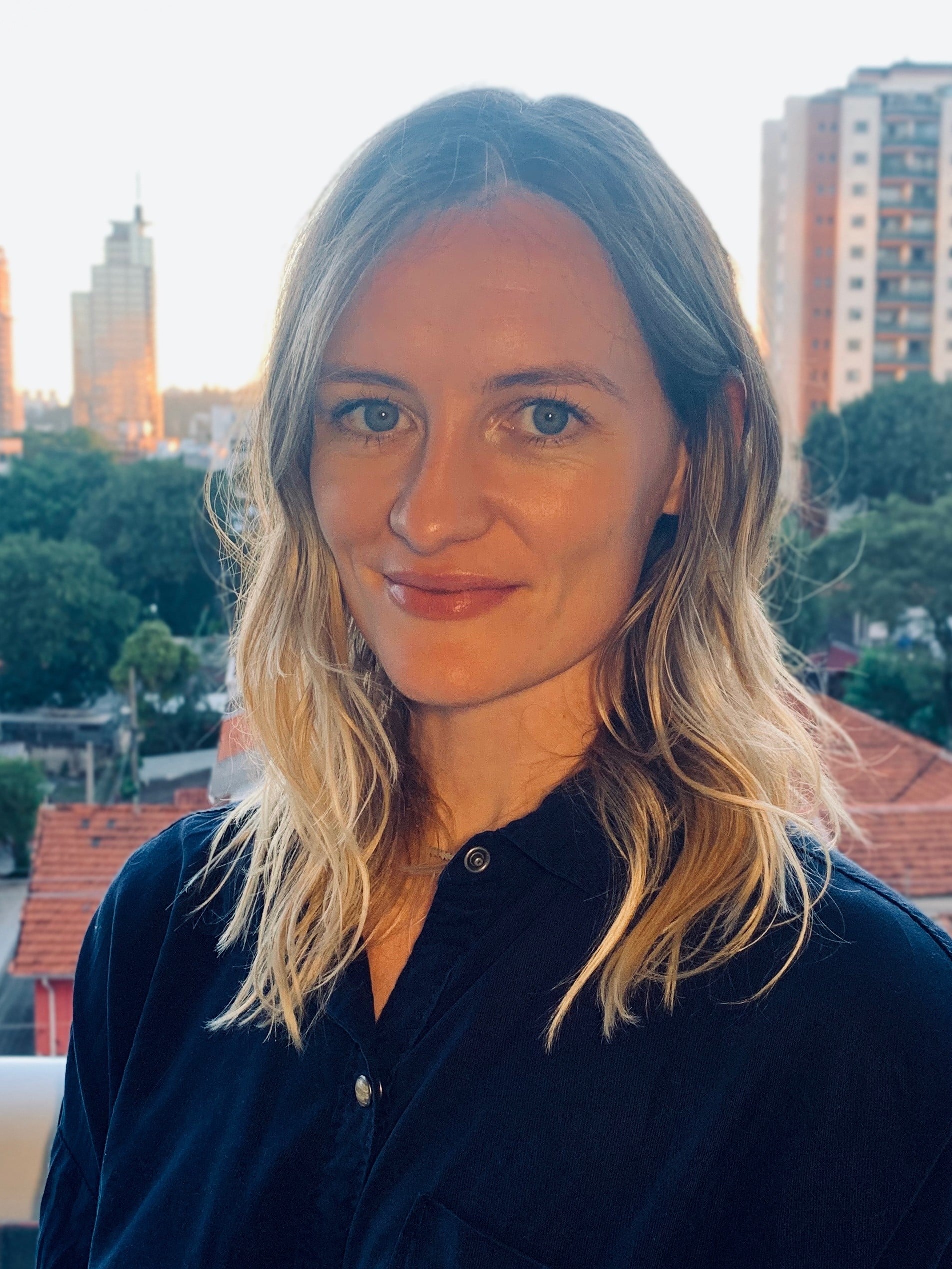
McKenna’s research began in 2013, amidst mass protests, and ultimately culminated with the election of Bolsonaro and his far-right coalition in 2018. Her study offers a compelling explanation for the decline of the progressive political left and the ascendancy of the radical right. She found that the rise of the far-right was not inevitable. Rather, the left’s underinvestment in civil society led to organizational atrophy, which rendered the party vulnerable to orchestrated destabilizing maneuvers from the right and center.
Ultimately, this study concludes that robust civil society organizations are essential safeguards against authoritarianism. With those systems in place, electoral democracies are more protected against anti-democratic populist appeals. Meanwhile, when civil society organizations are absent or neglected, individuals are left atomized in ways that make them susceptible to reactionary, populist appeals. In one particularly strong case of this point, McKenna considers how and why evangelicals’ political allegiances have shifted over the past two decades. She uses this longitudinal analysis to show how susceptibility to populist rhetoric can, in the absence of a robust civil society, extends even to those groups whose professed values would predict opposition to anti-democratic leaders. These findings speak well beyond the case at hand, with implications for broader efforts to understand contemporary links between religion and politics and the role those links play in the success of far-right movements.
This study speaks not only to broad-scale political change but also to smaller moments that exist within that process. McKenna conducted participant observations at more than 60 political events and protests, and also conducted online observations surrounding these events. Through those efforts, McKenna reveals that the political significance of protests is not determined in the moment but rather occurs through post-protest articulation work, which increasingly happens online. Methodologically, this work speaks to the need for scholars of social movements and organizations more generally to consider (and articulate the links between) the digital and non-digital fields in which these groups and their members operate day-to-day.
The committee was particularly impressed with McKenna’s innovative methodological approaches and her ability to move seamlessly between data and theory, using rich ethnographic and interview evidence to illustrate sophisticated theoretical ideas. One committee member called McKenna’s dissertation “captivating,” noting that “it offers a high level of detail but is proficient in pulling it together strategically.” Another committee member noted: “This is an impressive project in every way: beautifully written and empirically rich, it takes on a very current set of questions using the important case of Brazil.” Theoretically, this study also speaks to a wide range of subfields, including global and transnational sociological, political sociology, social movements, social networks, and race and ethnicity.
Distinguished Career Award for the Practice of Sociology
Chloe Bird, RAND
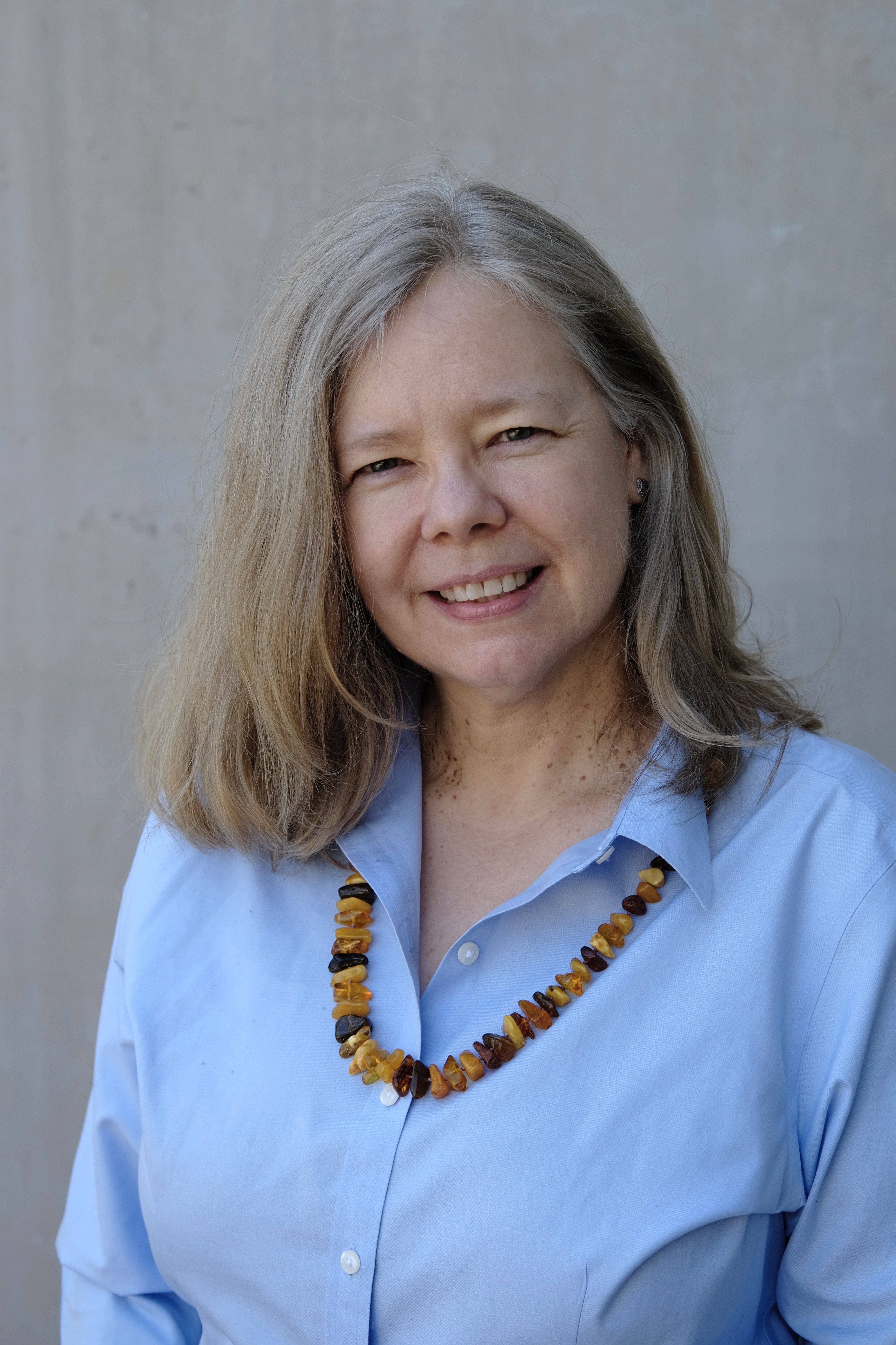
As one nominee described, “I know of only a handful of applied sociologists who get to bring their research findings directly to people who can make decisions that will improve lives. Dr. Bird is one of those sociologists.”
Bird received her PhD from the University of Illinois at Urbana-Champaign and began her career as a medical sociologist as a post-doctoral fellow at the Health Institute, a joint program of the New England Medical Center and Harvard School of Public Health. She then became a faculty member at Brown University before joining the RAND Corporation where she has worked since 2000.
Bird has made extensive contributions to the practice of public sociology through research that advances knowledge and theories in reproductive health that influence social policy. As one nominee said, “A hallmark of Chloe’s work is the translation of her scholarship to public policies that would improve women’s mental and physical (including reproductive) health over the life course.” In her long career, Bird has over 100 influential publications and reports assessing gaps in women’s health and disparities in quality of care and outcomes, receiving numerous awards for her work. As another nominee described, “She embodies the very best of engaged sociological practice by effectively communicating theoretically informed and methodologically sophisticated sociological research on women’s health to the public as well as a wide range of stake holders.”
Bird’s book Gender and Health: The Effects of Constrained Choices and Social Policies (Cambridge University Press 2008) funded by a National Library of Medicine grant, is widely recognized. In this work she provides a model that integrates social and biological theories to understand how the contributions of decisions made by families, employers, communities, and those at the level of social and economic policy shape the opportunity to pursue a healthy life.
Bird advances sociological research in practice settings, working with medical schools and hospitals, National Institutes of Health (NIH) advisory committees and panels, and managed care organizations. Her research informs social policy and care providers, illuminating how social policies shape gender differences in individual and population health. She has led multiple NIH-funded studies focused on the impact of neighborhood SES on allostatic load, morbidity and mortality, involving hierarchical modeling of data from the WHI and the National Health and Nutritional Examination Survey III, each merged with Census and other geographic data, assessing how gender and racial/ethnic differences in health behaviors, health and mortality are related to exposure and the impact of neighborhood characteristics, risks, and resources net of individual-level SES.
Bird has served as editor of the journal Women’s Health Issues and in this role has supported the work of many people to have influence on improving population health. As a nominee described, “Her dedication to identifying intervention points that have leverage to dramatically improve health and wellbeing for people with less social structural power or who are marginalized has had real-world implications.”
Bird is an avid mentor who is generous in helping others through professional development, using her experience and expertise, especially in her role as a sociologist outside the academy. A nominee said, “One of Dr. Bird’s greatest contributions is the time and care she takes mentoring graduate students, postdoctoral fellows, and early- to mid-career researchers for sociological practice. In her capacity as program faculty at RAND’s National Institute of Aging postdoctoral program, she not only invites junior scholars to collaborate on her projects but works closely with them to so that they can develop their own research agendas in sociological practice.”
J. Herman Blake, Medical University of South Carolina
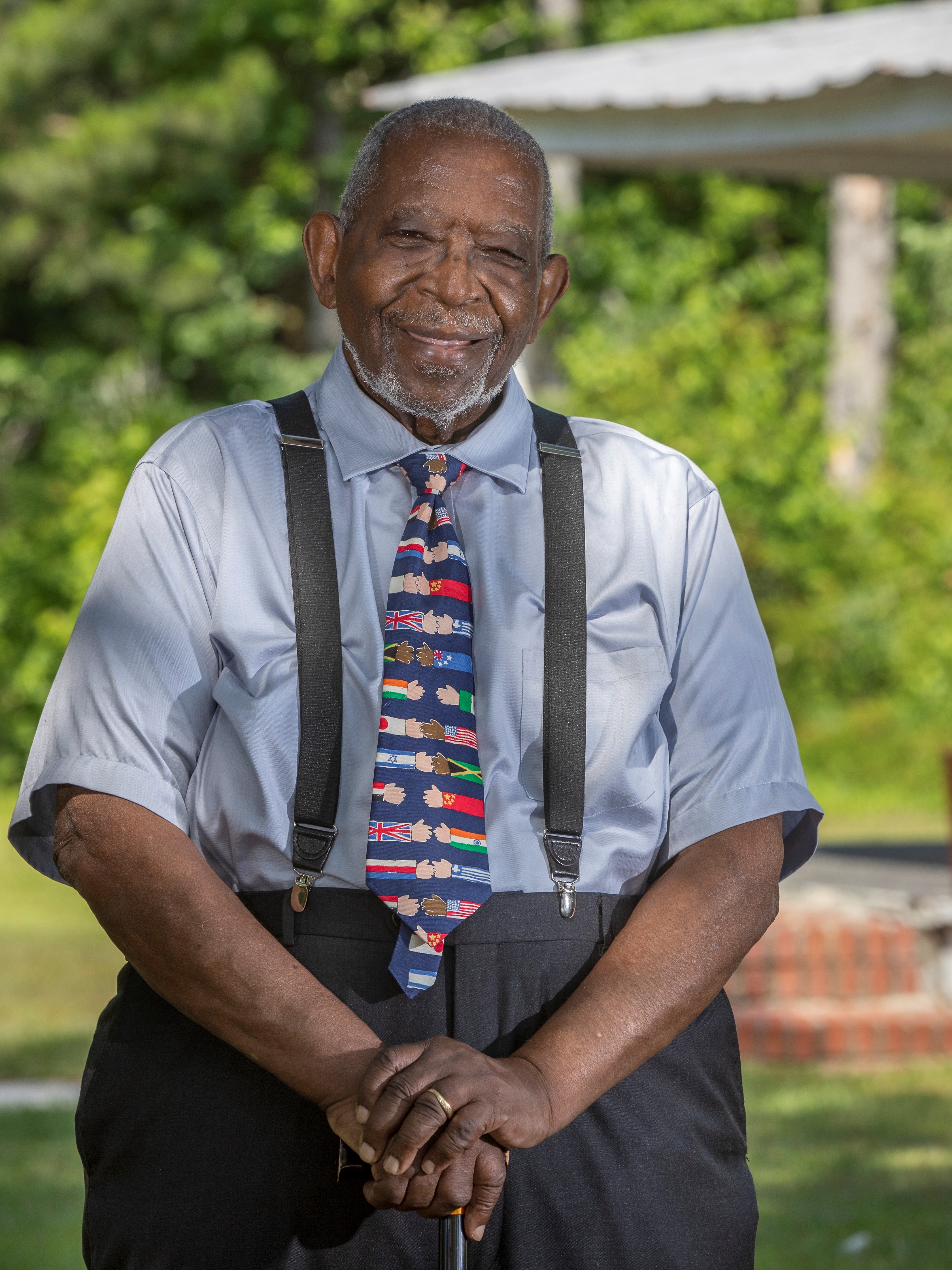
Blake has a long career devoted to using sociology to help students and communities. As he describes, “Sociology gave me an analytic approach to looking at communities, people, and organizations which I used in the university to establish programs to reach into the communities.”
Blake’s education and career in sociology began in 1960. He received his PhD from the University of California–Berkeley and for many years he served at the University of California–Santa Cruz as professor and founding provost of Oakes College. From 1984-1987, Blake was president of Tougaloo College, MI. From 1987-1989, he was the Eugene M. Lang Visiting Professor of Social Change at Swarthmore College, PA. From 1989-1997, he served as vice chancellor for undergraduate education at Indiana University Purdue University Indianapolis, and professor of sociology, developing outreach programs for public schools and communities to reach low income populations. From 1998-2005, he was director of African American studies at Iowa State University working closely with students to develop and train social scientists to work in and with community. From 2005-2007, he was scholar-in-residence and founding director of the Sea Island Institute, University of South Carolina, Beaufort. Blake was appointed the inaugural humanities scholar-in-residence, Medical University of South Carolina, from 2007-2015.
Blake’s influence on his students has been profound. As one nominee described, “His comprehensive student-centered approach was not only about teaching the general history of African Americans and sociology, but also tapping into the very soul of humanity by reading and sharing people’s inspirational stories in overcoming slavery, fighting for freedom and racial equality, as well as working to racially integrate our communities.” His longstanding commitment to experiential learning has shaped the programs, departments, and curricula in which he has served, and trained scores of students in public sociology.
From 2015-2018, Blake served as the inaugural executive director of the Gullah Geechee Cultural Heritage Corridor, a position created after his important work and influence as a full-time volunteer for the Gullah Geechee Cultural Heritage Corridor Commission. The corridor is a congressionally mandated cultural and linguistic heritage region along the Atlantic Coast of four states, from Wilmington, North Carolina, to St. Augustine, Florida, administered by the National Park Service. It is a 12,000-square mile area that is home to one of America’s most unique cultures shaped by enslaved Africans brought to southeastern U.S. Blake was instrumental in obtaining funding for the commission working closely with the offices of Rep. Jim Clyburn, Sen. Lindsey Graham and Sen. Tim Scott, to secure continuation funding for the corridor. Blake has worked arduously to ensure that the corridor reflects the history and needs of the community. As one nominee described, “In short, the commission embodies many enduring goals of Herman’s work: focusing on serving the community, with a particular emphasis on respecting the expertise of community members … Throughout his career, Herman has worked to preserve cultural traditions in these islands, increase social services to people, and train service providers to gain additional insight and sensitivity in their service delivery to residents.”
As Blake described, “I always believed that the university should serve the community” and has worked his entire career to develop community service programs. A nominee said, “Herman has placed a premium on listening to others in order to gain an understanding of their situations and lives. He particularly emphasizes the importance of grassroots organizations to promote community development. Herman Blake has had a remarkable career guided by the analytic tools of sociology.”
Distinguished Contributions to Teaching Award
Susan Ferguson, Grinnell College
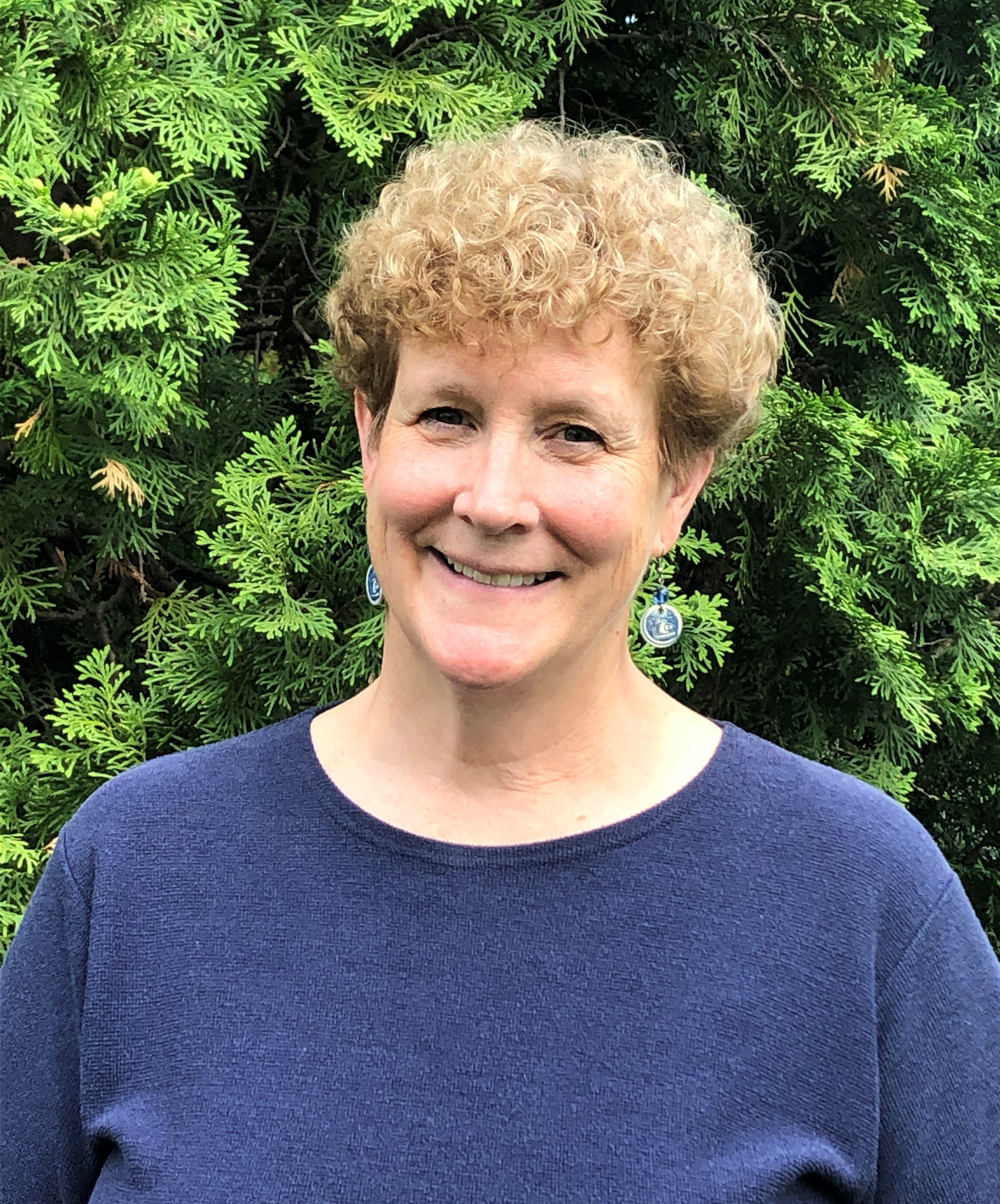
Ferguson served as co-chair on the 2017 ASA Task Force on the Undergraduate Major and took charge of deciding what should be emphasized in the sociology major. The document that she created provides guidance for curriculum and programs for sociology departments throughout the country.
A leader in this area for so long, really distinguished in the field, Ferguson’s record sets her far apart from the other candidates. She has been front and center in the trenches for a long time. She is a huge contributor to sociology, to teaching, to pedagogy, and to our visibility on this front.
With her significant impact on the national and international level, Ferguson fit the description of the teaching award to a ‘T.’ Veterans of the teaching committee for many years remarked that they’ve seen many strong candidates over the years and yet they had never seen anyone that matches Ferguson’s record. A common refrain from the members of the committee was, “I can’t believe she hasn’t won this award yet!”
Her record is a perfect combination of great classroom teaching, great mentoring, and great institutionalization of pedagogy, so that her achievements will move beyond her classroom and beyond her university and beyond the lifespan of her career.
The work Ferguson has done in curriculum development is very impressive. She covers everything that is related to the scholarship of teaching and learning, but she also mentors. She is an excellent classroom teacher, she does fabulous work developing curriculum which benefits students and faculty, she publishes scholarship on teaching and learning to expand the reach of her efforts broadly and she also helps make the next generation of classroom teachers through her mentoring of graduate students and junior scholars. For all these reasons the committee’s decision was unanimous in its choice to award the 2021 American Sociological Association Teaching Award to Ferguson.
Distinguished Scholarly Book Award
Celeste Watkins-Hayes, University of Michigan-Ann Arbor, for Remaking a Life: How Women Living with HIV/AIDS Confront Inequality (University of California Press)

Watkins-Hayes examines the difference between dying from, living with, and thriving despite an HIV/AIDS diagnosis. Dying from is a result of “injuries of inequality’ such as poverty, racism, misogyny, and homophobia. She challenges researchers to move beyond studying what people experience as they are “cured” but rather to understand the process of “transformation” in their journey to improve their health condition. Watkins-Hayes finds that women require more than just a cognitive shift, a desire to change, in order to find transformation. She explains that transformation happens with both a cognitive shift and the social support provided through the HIV/AIDS safety net. She finds that positive framing institutions enable women to shift from living with HIV/AIDS to thriving despite HIV/AIDS.
This book contributes to the discipline of sociology by developing novel methods and theoretical understandings across various subfields in sociology, including race and racism, gender, sexuality, health, social movements, intersectionality, culture, qualitative methods, and inequality. Beyond developing novel methods and nuanced theoretical ideas, Watkins-Hayes also provides a policy “blueprint” for effectively addressing HIV/AIDS and other public health issues, such as the opioid crisis. Remaking a Life: How Women Living with HIV/AIDS Confront Inequality is a ground-breaking book that promises to become a classic in the discipline of sociology.
Jessie Bernard Award
Jyoti Puri, Simmons University
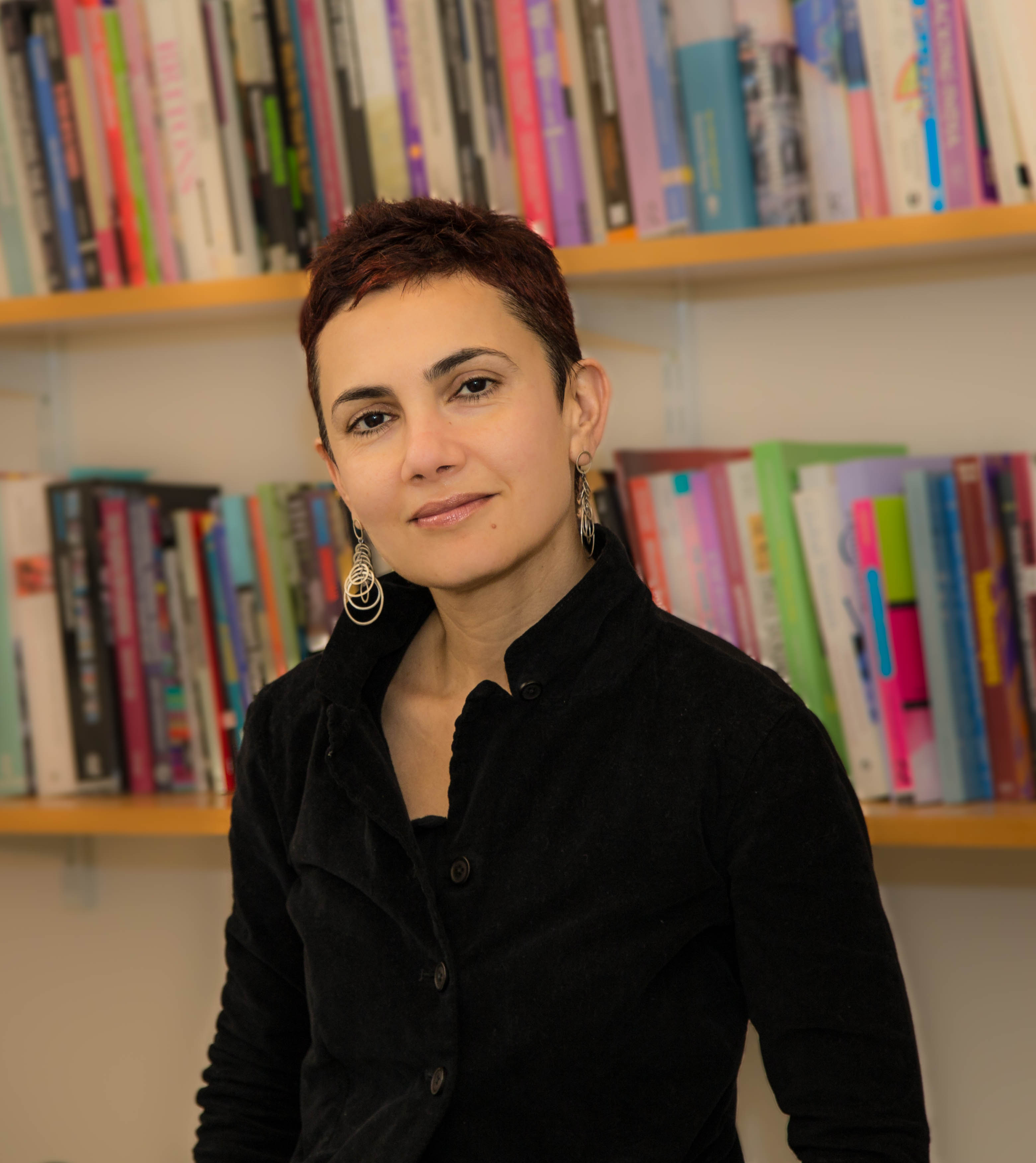
Puri was nominated by a collective of nine esteemed colleagues who highlighted the impact of her internationally-renowned scholarship. These nominators describe her as a “pioneer” in the field of feminist research who “has demonstrated the importance of transnational and intersectional feminisms, queer studies, and cultural studies to the study of gender and sexuality.” Regarding the significance of her contributions, they note that “her work has advanced a critique of Western feminist and queer theory for their failure to attend seriously to colonial dynamics reproduced by scholarship that neglects or marginalizes transnational issues or the legacy of European colonialism on canonical sociological understanding of gender, sex, and sexuality.” Puri’s commitment to advancing critical feminist and queer sociology has led to three single-authored books, two edited special issues, including two additional special issues underway, 20 scholarly articles and book chapters, 55 invited talks and keynotes delivered nationally and internationally, as well as seats on multiple editorial boards.
Her first book, Woman, Body and Desire in Postcolonial India: Narratives of Gender and Sexuality (Routledge, 1999), was the first postcolonial examination of gender and sexual politics within sociology, and it paved the way for the emergent field of transnational feminist sociology. Her most recent book, Sexual States: Governance and the Struggle over the Antisodomy Law in India (Duke University Press, 2016), received the 2018 Distinguished Book Award from ASA’s Sociology of Sexualities Section. It examines how class, colonial histories, postcolonial politics, racialization, and neoliberalism converge to shape politics around antisodomy laws in India. Puri’s work crosses multiple disciplinary boundaries, contributing to postcolonial theory, feminist geography, queer theory, and queer of color critique, in addition to the sociologies of gender and sexualities.
Beginning her training with a BA in sociology from the University of Bombay in 1987, Puri completed her MA and PhD degrees in sociology from Northeastern University. Upon graduation in 1996, she began an assistant professorship at Simmons University where she has remained through tenure and on to an endowed chairship, serving as director of the graduate program in gender/cultural studies as well as chair of the department of sociology over many moments of her career to date. Puri also recently served as research associate at Harvard Divinity in the Women’s Studies in Religion Program, 2019-2020.
Beyond the impact of her scholarship, Puri’s mentoring and collegiality in support of academic community and the professional advancement of others was evident in letters of support—all of whom relate tales of Puri’s collaborative mentoring efforts with scholars at all levels of their careers. In addition to pioneering scholarship that has expanded the scope of gender and sexualities scholarship, the review committee was impressed by the original coursework and teaching she has offered at her home institution.
As both a prolific and impactful scholar as well as a feminist community-builder, Puri fully embodies the spirit of the Jessie Bernard Award. She is a credit not only to our discipline, but to feminist scholarship more broadly.
Public Understanding of Sociology Award
Bernice A. Pescosolido, Indiana University-Bloomington

Pescosolido’s research has made major contributions to our understanding of mental health stigma, social networks, and suicide. She is particularly interested in understanding how social networks connect individuals to their communities and to institutions such that individual’s attitudes, behaviors, and opportunities to cultivate well-being are impacted. Pescosolido’s research on mental health stigma—or the negative or pejorative attitudes attached to mental illness—has been particularly important to both public sociology as well as medical sociology and sociological theory. Her research challenges widespread assumptions that the stigma of mental illness has abated; instead, her scholarship highlights stigma as an important and malleable social force ripe for sociological interventions to build a world worth living in. Pescosolido has made significant in-roads into challenging stigmas attached to mental illness, influencing public policy, and advocating for better treatment.
While the scientific insights Pescosolido’s body of research has produced are paradigm shifting, her commitment to translating her scholarship to stakeholders beyond the academy renders her an ideal candidate for the Public Understanding of Sociology Award. Pescosolido has worked tirelessly at the national, state, and local levels to foster public awareness about mental health and improve policies and decision making for individuals experiencing mental illness. Pescosolido founded and directs the Indiana Consortium for Mental Health Services Research, which is an inter-disciplinary program bringing together academic researchers from universities across the country with government leaders, consumers, and advocates to discuss and study the interface of the community and the treatment system. Pescosolido also played an important role in the first-ever surgeon general’s report on mental health. She is also the go-to person for the internationally recognized Carter Center (founded by former President Jimmy Carter and former First Lady Rosalynn Carter) in identifying precursors to, consequences of, and potential solutions to mental health challenges and mental illness stigma. Together with Rosalynn Carter, Pescosolido worked to reduce the myths and misconceptions of mental illnesses. She also led workshops for the Carter Center’s workshops on mental health journalism.
Pescosolido’s involvement with the Carter Center then led to an exciting collaboration with the actress Glenn Close to pilot the College Toolbox Project—a partnership connecting Indiana University and its students with Bring Change to Mind, the national nonprofit organization founded by Close. The goal of this program is to develop, pilot test, and assess the efficacy of anti-stigma program materials for use on college campuses and beyond. This program showcased Pescosolido’s leadership in identifying public means to reduce the stigma associated with mental illness and encourage people to seek the mental health services they need. College students, young adults, and professionals are seeking help for depression, bipolar disorder, and schizophrenia because Pescosolido determined that she was willing to apply her unparalleled intellect to the field of behavioral health and stigma reduction and a body of work that generations of professionals considered too difficult, politically unpopular, and time-consuming to address.
Locally, nationally, and internationally, Pescosolido is known for the passion she brings to her research, advocacy, and academic engagement. Her passion coupled with her remarkable accomplishments makes her an ideal candidate for the ASA Public Understanding of Sociology Award.
Rashawn Ray, University of Maryland-College Park

In his research, Ray pursues topics with great relevance for U.S. public life, such as health and racial disparities, racial reparations, and unconscious bias, including in policing. Several years before the tragic killing of Ahmaud Arbery in 2020, Ray published an article in Social Science Research called “Black People Don’t Exercise in My Neighborhood,” highlighting the ways in which Blacks feel threatened in white public spaces and therefore avoid exercising in public. Sadly, Ray’s research became extremely important for interpreting the events surrounding Arbery’s death, and he generously and skillfully contributed his voice to help the public understand how systemic racism played a role in the Arbery case and other similar cases. Ray’s response to these cases would already be noteworthy, but he has also consistently pursued avenues for sharing the sociological insights from his research with the broader public. His Brookings Institution policy paper “Bad Apples Come from Rotten Trees in Policing” (May 2020) translates sociological research on systemic racism and policing for a non-academic audience. One of his nominators told a story of having shared the article with a relative who was skeptical of the Black Lives Matter movement, noting that Ray’s essay opened up the possibility for them to have a more meaningful conversation about the topic due to his skill in relating sociological ideas approachably and persuasively. Ray’s clear talent in connecting with people and making sociological ideas understandable in the mainstream is evident in his media appearances. He has become a leading voice on issues of race and policing in the national media, having written more than 40 op-eds in various national media outlets ranging from the New York Times to the Huffington Post—over 20 of them in 2020 alone. In addition, he is one of the most publicly recognizable faces in the discipline of sociology, having provided interviews on national and international media outlets such as CNN and the BBC.
Beyond his great service to the discipline of sociology and to the wider society via his media appearances, Ray has also worked in the trenches, seeking to change institutional policies and practices more directly by working with police departments and policymakers on issues related to his research. In his work with the Lab for Applied Social Science Research, he consults with police departments around the country, offering them training to help address issues of unconscious bias. He has also testified in both the U.S. Congress and the Maryland Senate on a wide range of issues, such as families, health, reparations, and hate crimes, shaping public policy on the state and national levels.
Ray’s work as a public intellectual is truly remarkable in its positive impacts on national conversations on race and demonstrates clearly the promise of sociology in shaping U.S. public life. The committee can hardly imagine someone more deserving of the ASA Public Understanding of Sociology Award.
W.E.B. Du Bois Career of Distinguished Scholarship Award
Eduardo Bonilla-Silva, Duke University
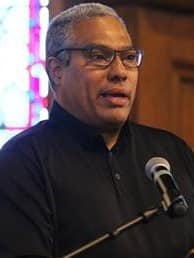
Bonilla-Silva has consistently produced enduring contributions over his career, a testament to his intellectual energy. His book, Racism Without Racists: Color-Blind Racism and the Persistence of Racial Inequality in America (Rowman & Littlefield Publishers) is now in its sixth edition, with each revision providing new insights, evolving with the times and deepening with each iteration. It remains the primary text on color-blind racism. Among his contributions in this vein is scholarship that drew attention to the ongoing significance of racism in the Obama era, published in a series of high-profile journal articles. His 2001 book, White Supremacy and Racism in the Post-Civil Rights Era (Lynne Rienner Publishers), was no less pathbreaking and award-winning. Along with his 1997 American Sociological Review article, “Rethinking Racism: Toward a Structural Interpretation,” this early body of work set the agenda for research on structural racism in the contemporary era. Bonilla-Silva has been no less keen to turn his critical eye to social science itself, co-editing, with Tukufu Zuberi, the influential volume, White Logic, White Methods: Racism and Methodology (Rowman & Littlefield Publishers, 2008). Altogether this work has been programmatic, challenging, and, indeed, prophetic. No twenty-first century scholarship on racism—in sociology or any other discipline—is complete without engaging with his work.
Bonilla-Silva has also contributed generously to discipline, beyond his scholarly contributions. Bonilla-Silva has served as American Sociological Association president, Southern Sociological Society president, and chair of the ASA Section on Race and Ethnic Minorities. He has served on the editorial boards of five journals. He has given hundreds of presentations and keynotes, in academic and non-academic settings, emerging as a critical voice for understanding racism.
His intellectual leadership is demonstrated, too, in his ongoing training of social scientists. His many generations of students speak of his generosity, his voluminous constructive comments, and his willingness to go the extra mile on their behalf. Students attest to both his brilliance and his approachability, finding a mentor who proved essential in advancing their own research agendas. Bonilla-Silva gives his time generously, serving as a role model for generations of justice-oriented scholars. The significance of his efforts is demonstrated in how many of his students have, in turn, produced their own award-winning and pathbreaking work.
Bonilla-Silva has advanced the discipline of sociology in plain and substantial ways. He is highly deserving of the W.E.B. Du Bois Career of Distinguished Scholarship Award.